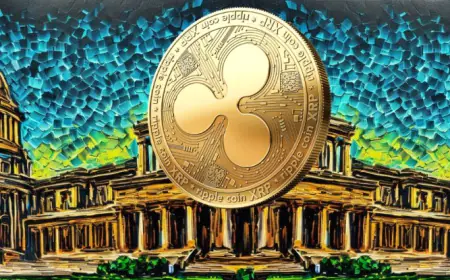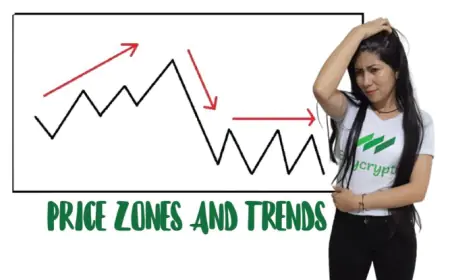Gold: A Reliable Asset in Unpredictable Markets
Gold has been a reliable asset for centuries, particularly in times of market uncertainty. In this article, we explore why gold is a trusted investment during unpredictable times, and how it can provide a safe haven for investors. Learn about the benefits of diversifying your portfolio with gold, and how it can help protect your wealth in volatile markets.

In times of economic and political uncertainty, investors are often looking for a safe haven to protect their wealth. And one asset that has stood the test of time as a reliable investment in unpredictable markets is gold. Gold has been used as a form of currency and a store of value for thousands of years, and its value has endured through wars, crises, and market crashes. But what makes gold such a trusted asset, particularly during times of market volatility? In this article, we'll explore the benefits of investing in gold, why it is considered a safe haven asset, and how it can help protect your wealth during uncertain times.
Why gold is a reliable asset in unpredictable markets?
Gold has been valued for its rarity, beauty, and usefulness for thousands of years. But beyond its aesthetic appeal, gold has also been recognized as a trusted store of value and a safe haven asset. Here are a few reasons why gold is a reliable investment in unpredictable markets:
1. Gold is a finite resource
Unlike paper currency, which can be printed endlessly, the supply of gold is finite. This means that gold cannot be easily devalued by an increase in supply, as can happen with fiat currency. As a result, gold is considered to be a more stable store of value over the long term.
2. Gold has a history of retaining its value
Throughout history, gold has consistently held its value, even during times of economic crisis and market volatility. This is because gold is not subject to the same fluctuations in value as paper currency, which can be influenced by factors such as inflation, interest rates, and geopolitical events. As a result, gold has become a trusted asset for investors looking to protect their wealth during uncertain times.
3. Gold is a globally recognized asset
Gold is a universally recognized asset, and is traded and valued in virtually every country around the world. This makes it a highly liquid asset, meaning that it can be easily bought and sold on the global market. As a result, investors can quickly convert their gold holdings into cash if needed, making it a valuable asset to hold in times of economic uncertainty.
By understanding these key characteristics of gold, investors can see why it is considered a reliable asset in unpredictable markets. In the next section, we'll explore how gold is used as a safe haven asset, and why it is particularly valuable during times of economic crisis.
Gold as a safe haven asset
During times of economic crisis or market volatility, investors often seek out safe haven assets – investments that are considered to be more stable and less volatile than other assets. Gold is widely considered to be a safe haven asset, and for good reason. Here are a few reasons why gold is a valuable asset to hold during times of economic uncertainty:
1. Gold is a hedge against inflation
Inflation – the rate at which prices for goods and services increase over time – can erode the value of paper currency over time. However, gold has historically been a hedge against inflation, as its value tends to increase during times of high inflation. As a result, holding gold can help protect your wealth against the negative effects of inflation.
2. Gold is a tangible asset
Unlike stocks, bonds, or other financial assets, gold is a tangible asset that can be held and stored in physical form. This can provide a sense of security for investors during times of economic uncertainty, as they have a physical asset that they can hold and control.
3. Gold has a low correlation with other assets
One of the benefits of diversifying your portfolio is to reduce risk by investing in assets that are not highly correlated with each other. Gold has a low correlation with other financial assets, such as stocks and bonds, which can help to reduce portfolio volatility and provide a hedge against market downturns.
4. Gold has a proven track record as a safe haven asset
Throughout history, gold has been used as a safe haven asset during times of economic crisis and market volatility. For example, during the 2008 financial crisis, the price of gold rose sharply as investors sought out safe havens for their wealth. This track record of resilience has made gold a trusted asset for investors looking to protect their wealth during uncertain times.
By understanding the benefits of holding gold as a safe haven asset, investors can make informed decisions about their portfolio diversification strategy. In the next section, we'll explore how investors can add gold to their investment portfolio.
How to invest in gold
Now that we've established the benefits of investing in gold, let's discuss how to invest in this precious metal. Here are a few options to consider:
-
Physical gold: You can invest in physical gold in the form of coins, bars, or bullion. You can buy and store this gold yourself, or you can use a custodian or storage service to store it for you.
-
Exchange-traded funds (ETFs): ETFs that track the price of gold are a popular way to invest in this precious metal. These funds trade on stock exchanges and can be bought and sold like stocks.
-
Gold mining stocks: Another way to invest in gold is to buy shares in gold mining companies. These companies extract gold from the ground and can be a good way to gain exposure to the gold market.
-
Gold futures and options: Futures and options contracts are another way to invest in gold. These contracts allow investors to buy or sell gold at a specific price at a specific date in the future.
When choosing how to invest in gold, it's important to consider your investment goals, risk tolerance, and investment horizon. It's also important to do your research and choose reputable and trustworthy investment providers.
Remember, investing in gold is not a one-size-fits-all solution, and it should be just one part of a diversified investment portfolio.
Stay tuned for the next part of this series, where we'll discuss the potential downsides of investing in gold.
Potential downsides of investing in gold
While investing in gold has its benefits, it's important to also consider the potential downsides. Here are a few to keep in mind:
-
Price volatility: While gold is often seen as a safe haven asset, its price can still be volatile, especially in the short term. This means that investors may experience significant fluctuations in the value of their gold investments.
-
Storage costs: If you choose to invest in physical gold, you'll need to consider the costs of storage and insurance. This can eat into your returns and make investing in gold less attractive.
-
No income generation: Unlike stocks or bonds, gold does not generate any income. This means that investors will not receive any dividends or interest payments from their gold investments.
-
Market risk: Like any investment, gold is subject to market risk. Factors such as changes in supply and demand, geopolitical events, and changes in interest rates can all affect the price of gold.
-
Lack of liquidity: While gold is a highly traded asset, it may not be as liquid as other investments such as stocks or bonds. This means that it may be more difficult to buy or sell gold quickly, especially during times of market volatility.
When considering investing in gold, it's important to weigh the potential benefits against these potential downsides. It's also important to ensure that investing in gold fits within your overall investment strategy and aligns with your investment goals and risk tolerance.
Stay tuned for the final part of this series, where we'll discuss some tips for investing in gold.
Tips for investing in gold
If you've decided to invest in gold, here are some tips to keep in mind:
-
Diversify your portfolio: Gold should be just one part of a diversified investment portfolio. Don't put all your eggs in one basket.
-
Consider your investment horizon: Gold can be a good short-term investment during times of market volatility, but it can also be a good long-term investment as a hedge against inflation.
-
Choose your investment method carefully: Consider the pros and cons of each investment method, and choose one that aligns with your investment goals and risk tolerance.
-
Do your research: Before investing in gold, research the market and potential investment providers. Choose reputable and trustworthy providers, and be aware of any fees or hidden costs.
-
Consider the tax implications: Depending on your country of residence and the investment method you choose, there may be tax implications for investing in gold. Consult a tax professional to understand these implications.
Brokers to tarde GOLD:
There are many reputable online brokers that allow investors to trade gold. Here are some popular options:
- Pepperstone is an Australian-based broker that provides access to a wide range of financial markets, including gold trading. They offer competitive spreads, multiple trading platforms (including MetaTrader 4 and cTrader), and various account types to cater to different trading needs.
- AvaTrade is an Irish broker that offers a diverse range of trading instruments, including gold. They provide access to multiple trading platforms, including their proprietary platform called AvaTradeGO, as well as popular platforms like MetaTrader 4. AvaTrade also offers educational resources and customer support in multiple languages.
-
Interactive Brokers: Interactive Brokers is another US-based online broker that offers a range of gold trading options, including physical gold, gold ETFs, and gold futures contracts. They also provide advanced trading tools and research resources for experienced investors.
In concusion, gold can be a reliable asset in unpredictable markets, but it's important to understand the potential benefits and downsides before investing. By diversifying your portfolio, considering your investment horizon, choosing your investment method carefully, doing your research, and understanding the tax implications, you can make informed decisions about investing in gold.
What's Your Reaction?
 Like
0
Like
0
 Dislike
0
Dislike
0
 Love
0
Love
0
 Funny
0
Funny
0
 Angry
0
Angry
0
 Sad
0
Sad
0
 Wow
0
Wow
0



































